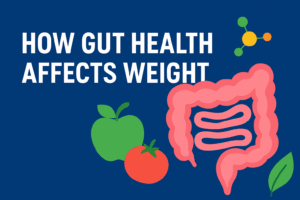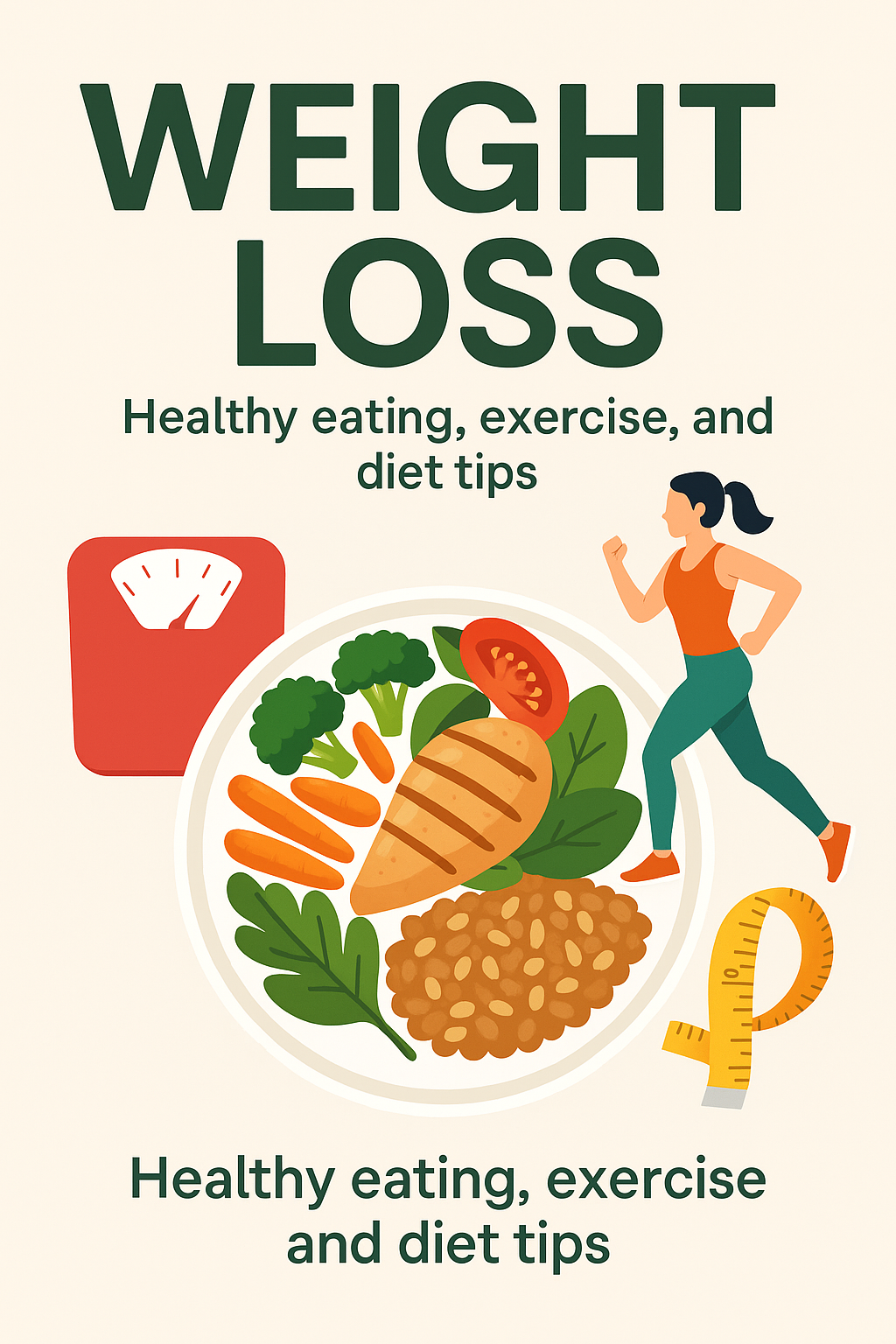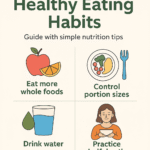When most people think about losing weight, they focus on counting calories, exercising more, or trying the latest diet trend. But there’s an often-overlooked factor that can make or break your weight loss journey—gut health. Understanding how gut health affects weight is key to achieving long-term, sustainable results.
Your gut is home to trillions of microorganisms, collectively known as the gut microbiome. These tiny organisms play a huge role in digestion, nutrient absorption, metabolism, and even your mood. Recent research shows that the state of your gut microbiome can influence whether you gain or lose weight.
In this guide, we’ll break down the science of how gut health affects weight, the signs of poor gut health, and the exact steps you can take to improve it for better weight management.

1. The Science of How Gut Health Affects Weight
Your gut is more than just a digestive system—it’s a complex ecosystem. Here’s how it influences your body weight:
-
Microbiome Balance: A diverse gut microbiome helps digest food efficiently, extract essential nutrients, and prevent excessive fat storage.
-
Hormonal Influence: Gut bacteria help regulate hunger hormones like ghrelin (hunger) and leptin (fullness), affecting how much you eat.
-
Metabolism Regulation: Healthy bacteria aid in stabilizing blood sugar levels, which prevents unnecessary fat gain.
-
Inflammation Control: A balanced gut reduces inflammation, which is linked to obesity and insulin resistance.
When the balance between “good” and “bad” bacteria is disrupted—a condition called dysbiosis—it can slow metabolism, increase cravings, and lead to weight gain.
https://empowerfitusa.com/7-habits-that-boost-metabolism/
2. Signs Your Gut Health May Be Affecting Your Weight
Many people don’t realize their gut is influencing their weight until symptoms become obvious. Here are signs that poor gut health could be behind your stubborn fat:
-
Frequent bloating or gas
-
Unexplained weight gain or inability to lose weight
-
Constant sugar or carb cravings
-
Fatigue and low energy
-
Mood swings or anxiety
-
Skin issues like acne, eczema, or rashes
-
Irregular bowel movements (constipation or diarrhea)
If these sound familiar, it’s time to take how gut health affects weight seriously.
3. The Role of Gut Bacteria in Fat Storage
Not all gut bacteria are the same. Some promote fat burning, while others encourage fat storage.
-
Firmicutes: Higher levels are linked to increased calorie extraction from food and more fat storage.
-
Bacteroidetes: These bacteria help break down fiber into short-chain fatty acids (SCFAs) that promote fat burning and reduce inflammation.
Studies have shown that overweight individuals tend to have more Firmicutes and fewer Bacteroidetes, highlighting how gut health affects weight at a microbial level.
4. Gut Inflammation and Weight Gain
An unhealthy gut often leads to chronic inflammation. When inflammation damages the intestinal lining, it can result in leaky gut syndrome—a condition where toxins and partially digested food leak into the bloodstream.
This triggers the immune system and promotes insulin resistance, making it easier for your body to store fat instead of burning it. Chronic inflammation also disrupts hunger hormones, making it harder to control your appetite.
5. Foods That Improve Gut Health and Support Weight Loss
Improving your gut health is one of the best strategies for long-term weight control. Here’s what to eat:
Probiotic-Rich Foods
-
Yogurt (unsweetened)
-
Kefir
-
Sauerkraut
-
Kimchi
-
Miso
Prebiotic Foods
Prebiotics feed the good bacteria in your gut.
-
Garlic
-
Onions
-
Asparagus
-
Bananas
-
Oats
High-Fiber Vegetables
Fiber keeps digestion smooth and promotes healthy gut flora.
-
Broccoli
-
Spinach
-
Kale
-
Brussels sprouts
Polyphenol-Rich Foods
These plant compounds feed healthy bacteria and reduce inflammation.
-
Berries
-
Green tea
-
Dark chocolate (85%+)
6. Lifestyle Habits That Boost Gut Health
Your daily habits have as much influence on your gut microbiome as your diet. To maximize how gut health affects weight, follow these tips:
-
Manage Stress: Chronic stress harms gut bacteria and increases belly fat. Meditation, yoga, and deep breathing can help.
-
Get Enough Sleep: Poor sleep disrupts hunger hormones and damages microbiome diversity.
-
Exercise Regularly: Physical activity increases the variety of healthy gut bacteria.
-
Stay Hydrated: Water supports digestion and nutrient absorption.
-
Avoid Unnecessary Antibiotics: Overuse can wipe out beneficial bacteria.
7. How Gut Health Affects Cravings and Overeating
One of the most surprising parts of how gut health affects weight is its influence on cravings. Bad bacteria thrive on sugar and processed carbs, so when they outnumber the good bacteria, they send signals to your brain to eat more of these foods.
By restoring gut balance, you can reduce intense cravings, making it easier to stick to a healthy eating plan without feeling deprived.
8. The Link Between Gut Health, Hormones, and Fat Loss
Your gut communicates with your endocrine system, which regulates hormones. Poor gut health can disrupt:
-
Insulin: Leading to higher blood sugar and fat storage
-
Cortisol: Stress hormone that promotes belly fat
-
Thyroid hormones: Sluggish thyroid can slow metabolism
A healthy gut supports hormone balance, which makes fat loss more efficient.
9. Improving Gut Health for Sustainable Weight Loss
Crash diets might give quick results, but they rarely improve gut health. When you focus on how gut health affects weight, you target the root cause of stubborn fat. Here’s a step-by-step plan:
-
Increase Probiotics: Add fermented foods or take a high-quality probiotic supplement.
-
Eat More Fiber: Aim for at least 25–30 grams daily from vegetables, fruits, and whole grains.
-
Limit Processed Foods: Refined carbs and sugars feed harmful bacteria.
-
Stay Active: Even walking 30 minutes a day can benefit your gut.
-
Prioritize Sleep: Aim for 7–9 hours each night.
10. The Takeaway
If you’ve been struggling to lose weight despite eating right and exercising, your gut might be the missing piece. The connection between how gut health affects weight is undeniable—your microbiome plays a direct role in fat storage, cravings, and metabolism.
By improving your gut health through diet, lifestyle changes, and proper sleep, you can finally break through weight loss plateaus and enjoy long-term results.
https://www.health.harvard.edu/staying-healthy/the-gut-microbiome-and-overall-health




